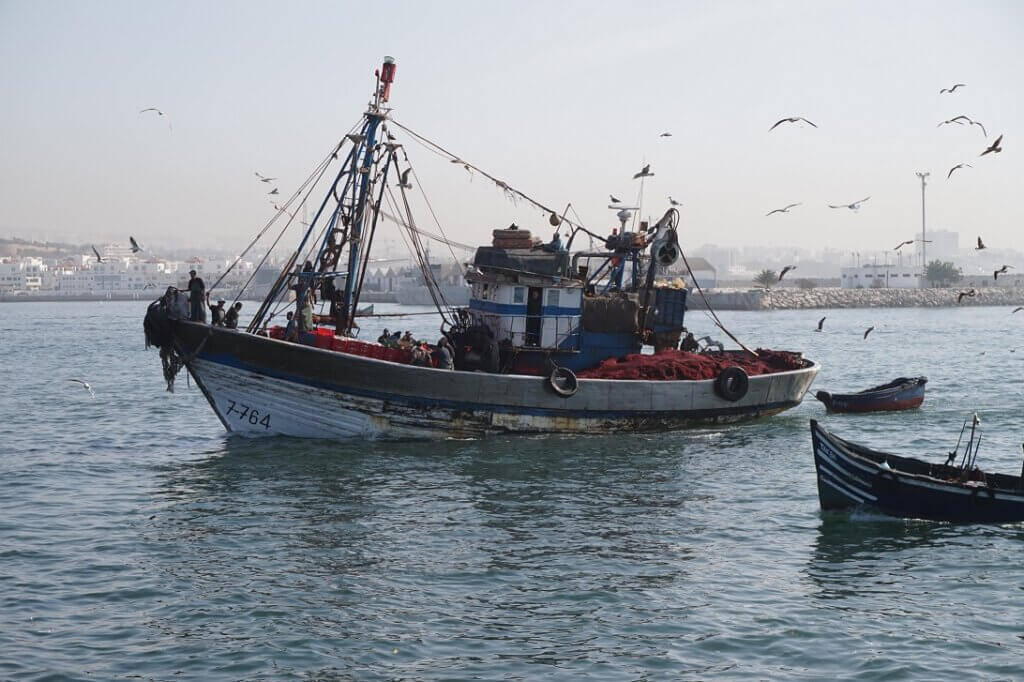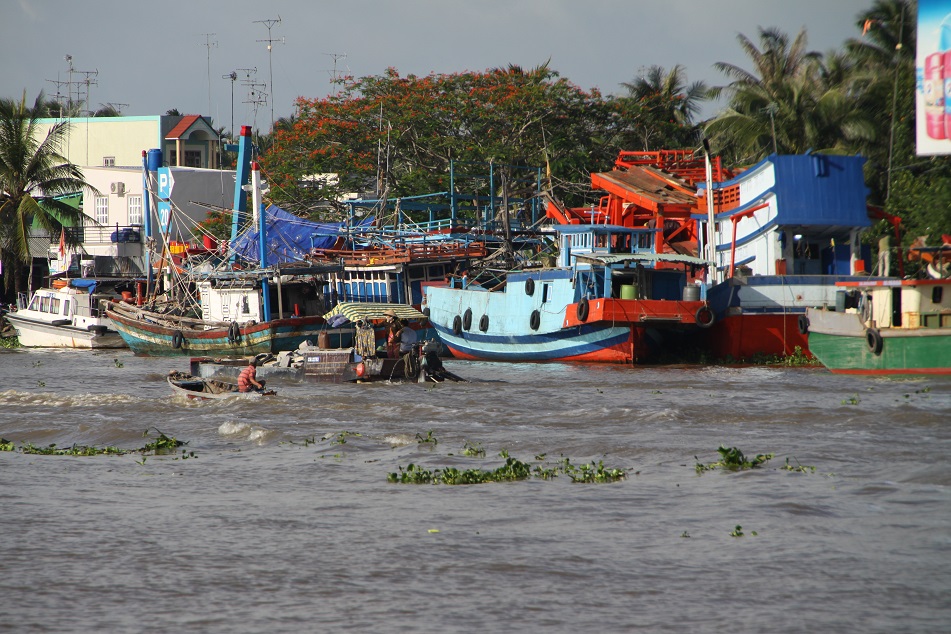
Top UK Seafood Products May Pose Risks to Sharks, Seabirds, Marine Mammals and Sea Turtles
ASDA first major retailer to assess impacts of its seafood business on ocean wildlife
London – An independent report released today assesses the risks to ocean wildlife from incidental capture in the fisheries that supply seafood to UK supermarket chain Asda. The report examines threats to marine mammals, sharks, seabirds and sea turtles and finds risks associated with some of the best-selling seafood species in the UK including tuna, cod and haddock.
The study, conducted by Sustainable Fisheries Partnership, RSPB/Birdlife International and Whale and Dolphin Conservation, comprehensively assessed the “bycatch,” the capture of non-target species, in the fisheries that supply Asda’s seafood. The study identifies the fisheries that pose the greatest risk to endangered, threatened and protected (ETP) marine species and recommends actions that Asda can take to reduce these risks. The report was prepared in full collaboration with Asda and marks the first time that a major retailer has performed a systematic audit of the impacts of its seafood business on marine wildlife.
“Asda is committed to being a leader on sustainable seafood in the retail industry,” said Chris Brown, senior director for sustainable supply chains at Asda. “Asda wanted to study fisheries bycatch, because we know we need to do more to protect marine wildlife. This report now provides us with a clear plan of the improvements we need to achieve from our seafood suppliers. We hope that our actions will motivate others in the seafood sector to look at the impacts of their supply chains on the ocean environment.
For seafood to be fully sustainable, we need to act at a much larger scale to address bycatch in commercial fisheries,” said Blake Lee-Harwood, chief programs officer at Sustainable Fisheries Partnership. “We have seen retailers effectively leverage major fisheries improvement by working in their supply chains. Now, we need retailers, like Asda, to be leaders and use their reach and influence to reduce the impacts of seafood production on ocean wildlife.”

Key findings of the study include:
- Longline fisheries for tuna in the Indian and Pacific oceans present serious risks to albatrosses, sharks, and sea turtles.
- Gillnet fisheries for cod and haddock in the northeast Atlantic Ocean present significant risks to seabirds and marine mammals, including porpoises and seals.
- American lobster pot and trap fisheries are an entanglement risk to whales, such as the endangered north Atlantic right whale, with their buoy lines at the surface.
In response to the study, Rory Crawford, bycatch programme manager at RSBP/Birdlife International said:
“We all want to know more about the food we eat so we can make the best decision that represents our values. This study shows that there is still much work to be done to tackle the capture of seabirds in fisheries – whether that’s albatrosses soaring over distant oceans or guillemots and fulmars plunging into uncertain seas closer to home. Happily, for many fishing gears there are solutions to this problem that can be implemented at minimal cost. Our hope is that this study results in better uptake of solutions and improved monitoring of fisheries, so the more retailers that participate in a similar process, the greater the potential impact.”
Sarah Dolman, ending bycatch programme manager at Whale and Dolphin Conservation further commented:
“Asda has taken this important step to recognise that bycatch of whales and dolphins, and other protected species might be a problem in their seafood supply chain and to investigate this further. Asda is the first supermarket to do this. Bycatch problems have been identified in a number of fisheries through this joint project and we will work with Asda to improve fisheries measures so their consumers can be confident that seafood bought does not harm whales, dolphins and porpoises. We urge other supermarkets to follow suit.”
The report recommends that all retailers systematically assess their seafood supply chains for risks to ETP species and require suppliers to deliver changes in the fisheries that pose the greatest threat. These changes could include changing fishing equipment or techniques, avoiding certain baits or adopting other measures to avoid catching ETP species.
According to the Sea Fish Industry Authority (Seafish), 97 percent of UK shoppers buy seafood, about 30 times a year or approximately every 12 days. Spurred by COVID-19 consumption shifts, UK retail seafood sales recently reached dramatic new highs in overall volume and value, topping 4 billion GBP, in the 12-month period ending in June 2020.
The report can be found here. The full analysis from this research can be found here.
ENDS
[registration_form]
The RSPB does have some outstanding staff and one of them is Rory Crawford. I knew the name rang a bell, it took a couple of seconds for the penny to drop – Rory very kindly represented the RSPB at a seminar we had way back in 2008 about the need for the conservation of wildlife to feature much more strongly in work to promote reduce, reuse, recycle and use of recycled material. The emphasis was on paper, its supposed renewability/sustainability can actually cause special problems so even more need for clear and persuasive communication than usual.
Rory spoke about the RSPB’s work in Sumatra with their Harapan rainforest reserve. It’s not so well known that as well as oil palm, acacia plantations for paper production have been a massive driver of lowland forest loss there, and therefore the very idea that paper’s OK as a material because you can just replant trees is very dangerous – you end up with plantations replacing real forests. Official anti waste programmes just don’t cover this and are generally crap. Rory made a lot of valuable contributions to the post presentations debate too as I recall. An awful lot more needs to be done on tackling consumerism, but this is a good example of doing so and Rory’s involvement indicates enthusiasm and professionalism. Good stuff RSPB more of the same please.
The seas are in such an appalling state that each of us should just not eat seafood unless we can be sure it hasn’t been produced destructively. I never buy it.
What’s more important, your taste buds, or the future of the world?
There needs to be a urgent deep reveiw into the not for profit charity the MSC , who incidently made 24 million profit last year by promoting fish as sustainably fished, when its absolutely not, the blue tick sign on supermarket shelves and fish counters sells fish to caring customers, but it’s a lie, the blue tick is a branding that is paid for by the supermarket, and the fishing companies also pay for the branding, the whole scheme’s a lie, there are no fish that are sustainably fished, 90% of world fish stock has gone in last 50-100 years.